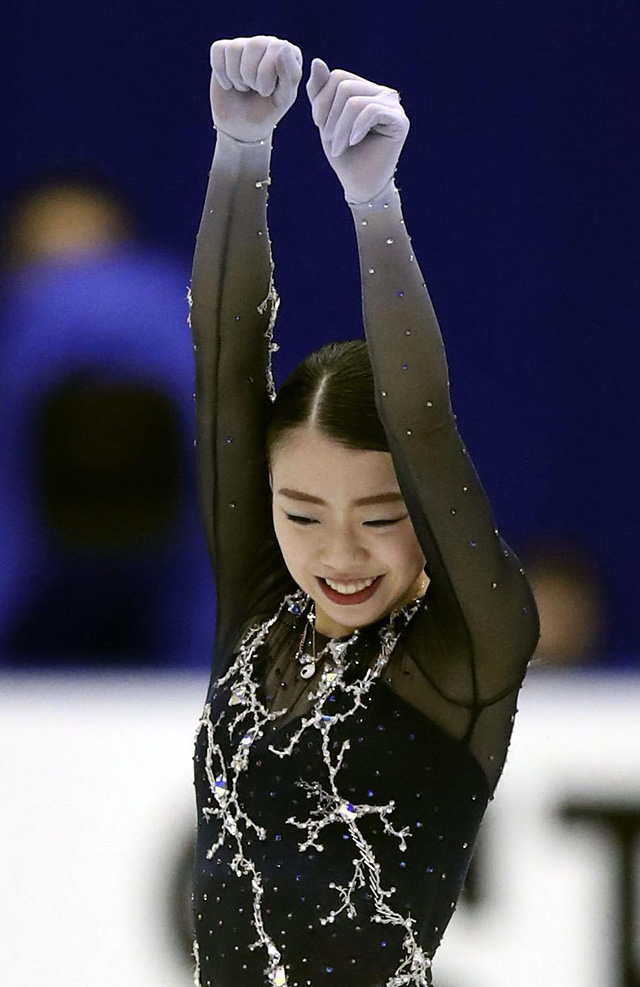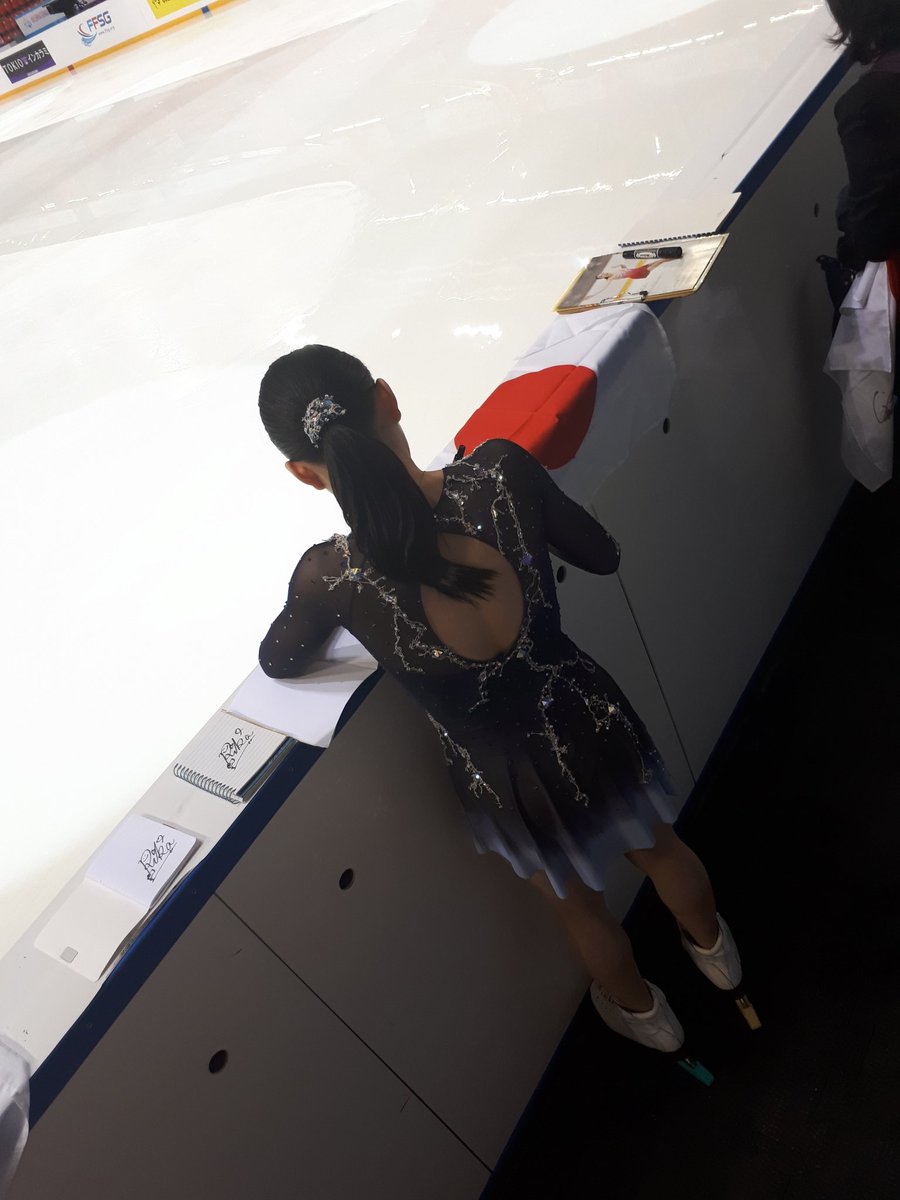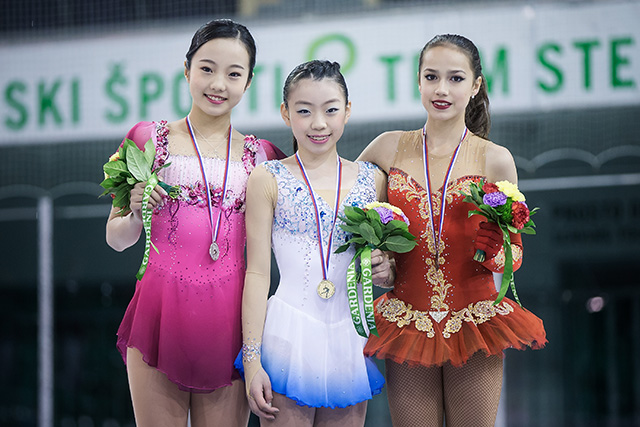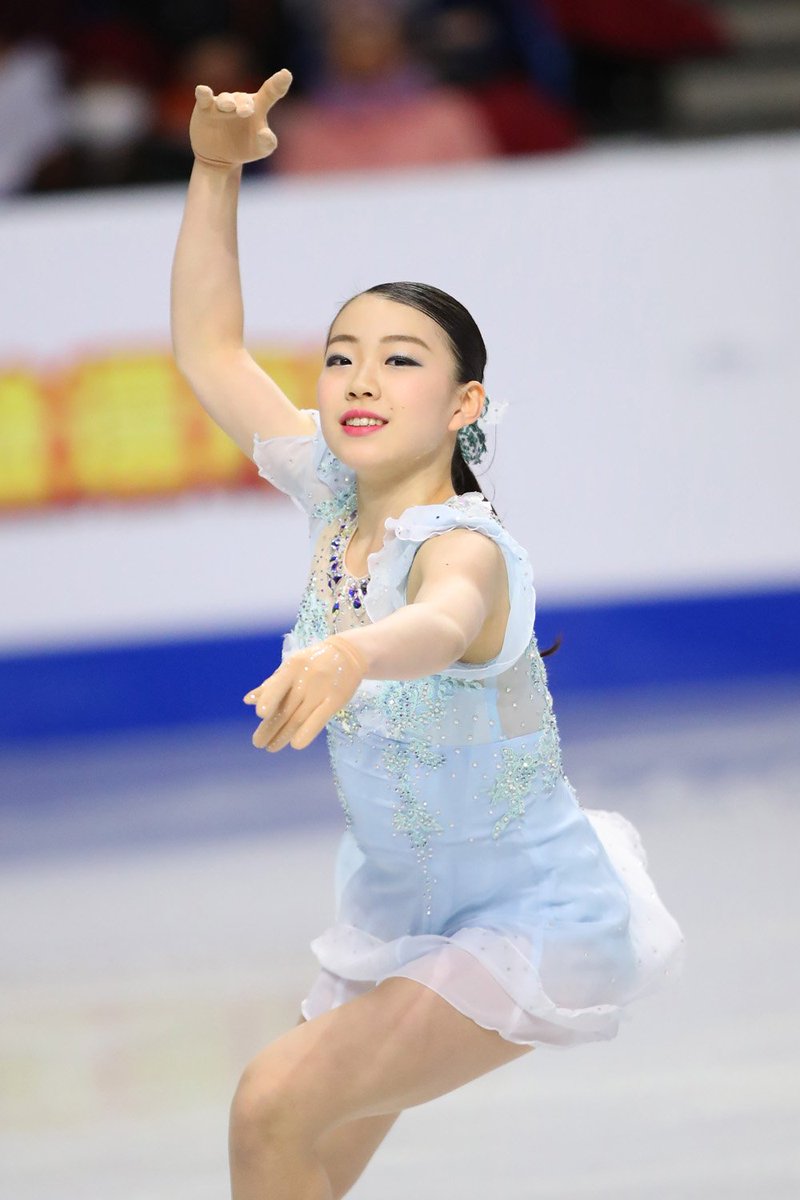|
|
Post by Admin on Nov 29, 2018 18:39:39 GMT
Figure Skating: Special Report The NHK Trophy earlier in November was Kihira's first appearance in the ISU Grand Prix series. She placed 5th in the short program after falling in her first triple Axel, then came back stronger in the free program, opening with a triple axel, triple-toe loop combination before landing another high-grade triple Axel, successfully landing all jumps and winning the highest rating of 4 for her spins and steps.  She scored 154.72 in the free skate with technical points of 87.17, more than the record number awarded to Zagitova earlier in the season and competitive with the men. In total, she earned 224.31, beating Japanese ace Satoko Miyahara.
Shizuka Arakawa, who won gold at the Turin Winter Olympics in 2006, described Kihira's triple Axel as a seamless, textbook move with beautiful aerial posture and orbit and a clean landing.  |
|
|
|
Post by Admin on Nov 30, 2018 18:45:59 GMT
 Kihira's second round in France showed her recovery skills and level of control over the game. She placed second in the short program after a misfire in her triple Axel, and opened her free program with a shaky triple Axel that was evaluated as under-rotated.  She soon recovered by switching to a double Axel combined with a triple-toe loop. Kihira scored 138.28 in the free skate with 3 successful jumps in the latter half of the program. Her total score was 205.92, winning her a second gold medal and a ticket to the final, but with some regrets about her performance. "I haven't had a perfect performance yet in the short and free programs this season," she told news media. "I'll do my best in the final so I don't have any regrets." |
|
|
|
Post by Admin on Dec 2, 2018 18:35:13 GMT
Kihira's skills are attributed to her exceptional physical strength. She spends most of her day training, with 6 hours of skating, plus ballet practice and physical training. She attends high school through correspondence, studying on the move from one training session to another. She even makes her own lunch to ease the burden on her parents. Kihira says she has a special passion for her trademark triple Axel.  "I can draw people's attention with the jump," she said, adding, "I'll keep trying it as everyone expects me to." Kihira is also practicing a quadruple jump that some Russian juniors have already achieved. "I have to consider how to improve on what I've already done...and I want to practice the quadruple jump for the coming era in women's quadruple jump," Kihira said. |
|
|
|
Post by Admin on Dec 7, 2018 18:36:01 GMT
 Japanese figure skating star Rika Kihira has stolen the show at the Grand Prix final in Vancouver, Canada, delivering a stunning short program performance and breaking the world record set by Russia’s Alina Zagitova. The 16-year-old skater flawlessly landed a triple axel before nailing two other jumping elements, including a triple flip in combination with a triple toe loop to post the highest score of the competition with 82.51 points. "I was surprised when I saw the (world record) score. It was a score I never imagined. I feel really happy," Kihira said.  |
|
|
|
Post by Admin on Dec 8, 2018 18:46:49 GMT
Japan's Rika Kihira broke the women's short program world record in the first day of the ISU Grand Prix final in Vancouver, Canada. Kihira, along with 2018 Olympic Champion Alina Zagitova, performed the best at the event, which runs till December 9.
The final six figure skaters for the short program were made up evenly by Japanese and Russian athletes. Kihira was the third to appear on the ice, and the 16-year-old stole the limelight by performing a series of high difficulty maneuvers. The Japanese nailed a triple axel with decent completion and then during her routine set to Clair de Lune. She also had a triple flip-triple toe and triple Lutz with her arms over her head.
The teenager finished the short program smoothly with 82.51 points, which was not only her personal best but the highest of the season and a new world record.
|
|